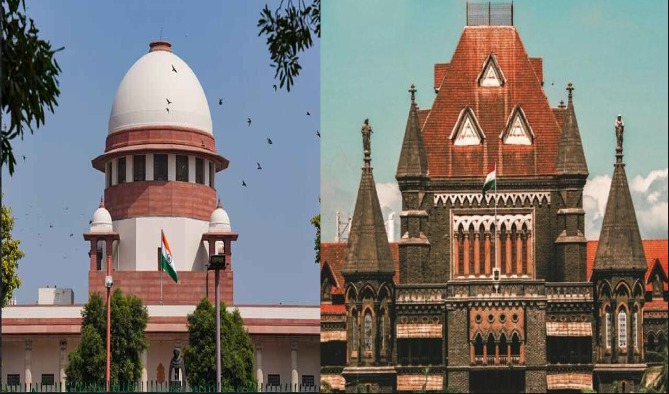
The Supreme Court on Monday refused to hear a PIL seeking the establishment of a permanent hybrid mode of proceedings at the Bombay High Court and all of its Benches in Aurangabad, Nagpur, and Goa.
The bench of Justices led by CJI DY Chandrachud, Judge PS Narasimha, and Justice JB Pardiwala remarked while dismissing the petition that the petitioner had the option of approaching to the High Court and allowed the petitioner the liberty to do so.
CJI DY Chandrachud stated at the outset, “Why not take this to the High Court? Move to the High Court under Section 226.”
The bench subsequently rejected the petition, providing the petitioner the right to appeal to the High Court under Article 226.
According to the petition filed by ‘Law Lab India,’ virtual hearings will promote the right to access to justice provided by Articles 21 and 19 of the Indian Constitution. The petition claimed that because the Bombay High Court did not have a hybrid mode of hearing, every litigant who wanted to attend court had to travel vast distances to the city where the Bench was located.
It said, “This requires a significant expenditure of both money and time. The litigants must physically go to and attend court. Due to time constraints, if the issue is not heard, the litigant’s travel is to no consequence. As a result, litigants must travel on every date. The High Court’s cause lists are published late on the preceding day. This makes it difficult for the litigant to organise his/her travel at the eleventh hour.”
The petition also contended that even if the matter was ordered to be posted on a specific day, it would not be listed for a variety of reasons, putting the litigant, who had planned his travel ahead of time, in an unpleasant situation.
While citing reasons of transparency, reduction of pendency of cases, and access of justice, the petition had cited the example of Orissa High Court and stated, “The Hon’ble Chief Justice of India recently opened virtual High Courts in 10 districts of the state of Odisha. As a result, virtual benches of the Hon’ble Orissa High Court are now operating in 10 districts across Odisha.”




